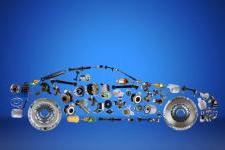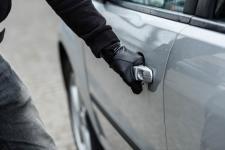Should I Lease or Buy my Next Car?

Are you deciding whether to lease or buy your next car? Leasing vs buying is a common question for many, and the best solution can vary for everyone. It really does depend on your personal circumstances.
It would help if you considered the following things:
-
Do you want to own your car?
-
How many miles do you travel per year?
-
Are you accident-prone or have children/dogs that are likely to damage your car?
-
Do you want to drive an upmarket/high-value car?
-
Are you happy to take responsibility for maintaining your vehicle?
We’re here to help you make the right choice. This guide shares the car leasing/owning process and the difference between leasing and financing a car. We will also look at some of the benefits of leasing a car.
Is it better to lease or buy a car?
Leasing vs buying is a personal choice, and there are a few factors to consider.
Car Ownership
With car leasing, you will never own your own vehicle. However, you won’t need to worry about the depreciation of a car’s value and reselling it. You will simply hand it back at the end of the contract and move on to your next one. You can also take advantage of car leasing deals to get a great price for your vehicle.
Buying a vehicle becomes an asset. This means it's yours for as long as you want, and you can resell it as you wish. There’s also the benefit of customising and modifying the car.
Weighing up the two depends on your circumstance, as each has pros and cons.
When you own a car, you must consider the depreciation of your vehicle the longer you have it. When you lease a car, there are restrictions to customising and never having full ownership.
Maintenance and warranty
Lease vehicles are usually brand new and provide a warranty. Warranties last for around three years. As part of your lease, you can also purchase a funder-maintained agreement. This agreement is an extra cost to your monthly rental price. It covers any maintenance issues or repairs. Maintenance packages help with budgeting because they’re included in your fixed monthly plan.
Read more: What is a Maintenance Package?
For vehicle ownership, it’s your responsibility to cover maintenance costs. As the car ages, repairs are likely to increase in price. Pre-owned vehicles may not be under manufacturer warranty. This means all cover comes out of your pocket.
Lifestyle: mileage and fair wear and tear
When leasing a vehicle, you will be questioned on car milage. Depending on the amount of mileage, your monthly rental price will increase. You will agree on the number of miles for the car at the beginning of your lease. If you exceed that, you will face excess mileage charges.
At the end of a lease, you will hand the car back, and it’s expected to be in a fair condition. If any damage outside the ‘fair wear and tear guidelines’ has occurred, you will be charged for repairs.
For your own car, mileage is only an issue with your insurance companies, and you can drive as many as you have agreed. With any damages and minor scrapes, it’s your discretion to get them fixed. With leasing, servicing and MOTs are usually covered depending on what package you choose.
Is it cheaper to lease or buy a car?
Price can vary depending on the type of vehicle and its purpose. These factors share insight into what you need to consider regarding the car’s cost. However, often, it is cheaper to lease a car. With leasing and buying you usually have an initial deposit/payment. How much you put down depends on what is on offer and how much you are willing to put down.
Monthly Payments
Contract hire agreements vary in price depending on the vehicle. Initially, you may pay a more significant sum upfront, followed by fixed monthly rental costs. At the end of the lease, return the car and choose another. The process of continued monthly payment process renews. With car leasing, you have a fixed monthly payment which can help with budgeting.
Buying a car, you will make one payment initially to cover all the costs. Alternatively, you can look into a hire purchase agreement or bank loan. Many people choose one of these methods because, at the end of all the payments, you will own the car. However, in most cases, these methods cost more than contract hires, as you are paying for the car's total value.
Personal contract purchase
Personal contract purchase offers the most choice as a funding option. The monthly payments are generally lower in this agreement. This is because part of the total payment for the car is deferred until the end.
The largest payment is made at the end of the contract. This is called a ‘balloon payment’. Balloon payments can be opted out of. However, it means you will not own the vehicle after the contract has finished. Other funding methods don’t offer this option.
High-value/prestige cars
With contract hire, your payments aren’t for the car’s total value. They are paying for the depreciation on the value of that car for the time period you’re driving it. This leads to lower monthly costs and an affordable way to drive a high-value vehicle. As prestige cars hold their value well, the cost of depreciation may be lower.
Unsure how to fund your next vehicle? Our expert team is happy to help guide you through. Contact our team on 01273 433480 to discuss the next steps of your lease.






